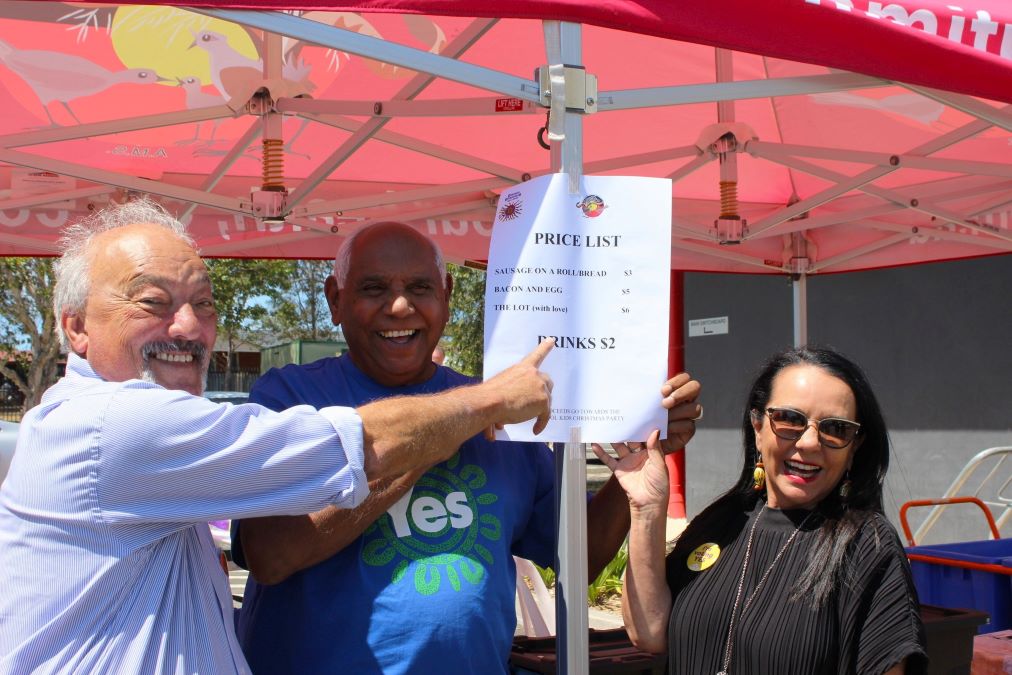
If you’re a Yes supporter in Macarthur and outer South western Sydney, you have more reason to feel disappointed with Saturday’s result.
With 96.42 of the vote counted, people who live in the federal seat of Macarthur gave the referendum a big thumbs down.
The ballot paper asked them to vote Yes or No to “A proposed law to alter the constitution to recognise the First People of Australia by establishing an Aboriginal and Torres Strait Islander Voice’’.
While 38,812 (34.82 percent) wrote Yes on their ballot papers, 72,661 (65.18 percent) wrote No.
The Macarthur No vote was more than five percent higher than the national average, which would be of some concern to the sitting member, Dr Mike Freelander.
He posted this on his Facebook page yesterday: “Whilst it wasn’t the result I was hoping for, our country has had its say and I of course respect the outcome.
“It’s time now for our country to find other ways and means to help close the gaps that Indigenous Australians face. I accept that more should have been done to deliver a stronger Yes vote in Macarthur and I am sorry we didn’t get the result we hoped for.
“Thank you to the volunteers and members of our community that supported this important cause.
“I’m back in Parliament this week where I will continue to advocate for all members of our community and our needs and the issues that we face,’’ said Dr Freelander, who is pictured above at Tharawal Aboriginal Corporation centre in Airds during voting on Saturday. He is with CEO Darryl Wright and Linda Burney, the minister for Indigenous Australians.
In other parts of the electorate, which is based around Campbelltown, the Airds High School polling recorded a strong No vote, 672 to 411 Yes, in a suburb with the highest number of Indigenous Australians in Campbelltown, if not Macarthur.
The Yes vote did come out on top in the Tharawal Aboriginal Medical Services centre polling booth, with 208 votes. There were 148 No votes cast.
Ambarvale West (Thomas Acres Public school) was another polling booth where the Yes vote was higher than the No vote in Campbelltown.
Of the votes cast, 611 were for Yes and 316 for No.
But they were the exception in Macarthur.
There were heavy losses for the Yes campaign in both Camden and Campbelltown.
Notably, the Camden Civic Centre booth returned a thumping No vote majority (1,122), while Yes received just 328.
It was the same story in the centre of Campbelltown, where 11,581 people voted No at the civic centre pre poll centre.
The Yes campaign received 5,207 votes, less than half of the No total.
The prepoll voting centre in Oran Park also produced a large No majority, with 7,166 people voting No and 3,139 voting Yes.
In Werriwa, which is held by a Labor MP, Anne Stanley, 40,155 people voted Yes, and 61,956 voted No, with the percentages reflecting the national vote.
It was different story in Hume, the seat held by opposition treasury spokesman Angus Taylor, where almost 74 percent voted No, and just 26 percent voted Yes.
Hume includes parts of Camden such as Cobbitty (889 No, 301 Yes) in the north, but extends to country towns like Goulburn in the south.

The Voice vote has come and gone with resounding opposition. IMHO, it was always going to be controversial and divisive. Similar to the condescending “Welcome to Country” hollow introduction at many events. It’s unnecessary for every VIP to repeat the same message, but what is even more divisive is the current trend for the paid Aboriginal spokesperson to insist everyone stand for a one minutes silence as a mark of respect for local Aboriginal People for whatever reason he/she chooses.
Sadly, it has progressed to a point where at the last Liverpool Anzac Day Dawn Service there were two one-minute silence periods, one during the “Welcome to Country” speech and one for the Anzacs. I consider that to be both disrespectful and divisive.